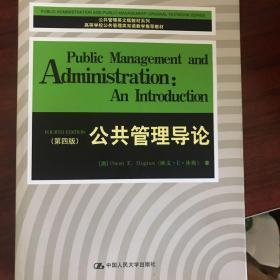
公共管理导论(第四版)
复旦大学行政管理专业考研参考教材
¥ 30 6.7折 ¥ 45 全新
仅1件
上海松江
认证卖家担保交易快速发货售后保障
作者[澳]Owen E.Hughes(欧文·E·休斯) 著
出版社中国人民大学出版社
出版时间2015-08
版次4
装帧平装
上书时间2019-12-23

卖书朋克黄的书摊
四年老店
进店
收藏店铺
- 在售商品 暂无
- 平均发货时间 暂无
- 好评率 暂无
- 最新上架
商品详情
- 品相描述:全新
图书标准信息
- 作者 [澳]Owen E.Hughes(欧文·E·休斯) 著
- 出版社 中国人民大学出版社
- 出版时间 2015-08
- 版次 4
- ISBN 9787300216782
- 定价 45.00元
- 装帧 平装
- 开本 16开
- 纸张 胶版纸
- 页数 400页
- 字数 99999千字
- 正文语种 简体中文,英语
- 原版书名 Public Management and Administration:an Introduction(Fourth Edition)
- 丛书 公共管理英文版教材系列
- 【内容简介】
-
休斯教授的《公共管理导论》是在对传统的公共行政模式与新公共管理模式两种典范进行比较的基础上撰写的,作者认为公共管理作为一种新型的政府治理典范,终将取代传统公共行政。全书详尽阐述了公共管理发展历程中的若干模式——传统的公共行政模式、新公共管理模式、公共政策模式和治理模式,全面介绍了公共管理典范下的战略管理、领导力和人事管理、财政和绩效管理、电子政务的运用和发展等内容,并审视了发展中国家公共管理的发展历程、存在的问题及未来的发展趋势。
本书是公共管理领域最具影响力的经典著作之一,也是一部极佳的公共管理入门教材。全书英文表述简洁流畅、通俗易懂,可与中文翻译版配套使用,是一部理想的公共管理课程双语教材。
本书特色
(1)名家名作:本书为澳大利亚知名公共管理学者欧文•E•休斯的代表作品,由我国著名公共行政学家张成福教授撰写导读。
(2)影响力强:本书英文原著自首版以来畅销二十余年,被我国引进后,在公共管理学界和政府部门产生了广泛的影响。
(3)内容新颖:本书第四版增加了“治理”一章,对治理理论的发展进行了梳理,对政府(government)与治理(governance)的关系进行了研究,对新公共管理的治理及治理与网络的关系进行了重点论述。 - 【作者简介】
-
欧文•E•休斯(Owen E. Hughes)
国际知名的政治学家和公共行政学家,澳大利亚皇家墨尔本理工大学教授,主要研究领域为公共行政与公共管理、公共政策、澳大利亚政治等。在加入皇家墨尔本理工大学之前,休斯教授长期在澳大利亚莫纳什大学任教,曾担任该校管理系系主任,并被美国的科罗拉多大学、乔治城大学和我国的中国人民大学聘为客座教授。《公共管理导论》一书为其代表作,该书的出版确立了他在公共管理领域著名学者的地位。他还著有《澳大利亚政治》、《政府间关系与公共政策》等,都颇具影响。 - 【目录】
-
前言1
第1章变革的时代1
1.1引言1
1.2行政与管理3
1.3公共部门改革6
1.4公共部门变革的动力9
1.5公共管理学15
1.6结论17
第2章政府的角色19
2.1引言19
2.2公共部门的必要性21
2.3政府工具24
2.4作为公共政策基础的市场失灵28
2.5政府干预的阶段31
2.6政府的规模38
2.7结论41
第3章传统的公共行政模式43
3.1引言43
3.2早期的行政44
3.319世纪的改革46
3.4韦伯的官僚制理论48
3.5威尔逊与政治控制52
3.6泰勒与公共行政54
3.7传统模式存在的问题59
3.8结论72
第4章新公共管理74
4.1引言74
4.2管理的内涵76
4.3管理方法的产生78
4.4管理的理论基础83
4.5新公共管理的问题85
4.6公共部门改革89
4.7对管理主义的批判94
4.8结论101
第5章公共政策103
5.1引言103
5.2公共政策、行政与管理105
5.3政策分析107
5.4经济性公共政策111
5.5政治性公共政策113
5.6基于证据的政策116
5.7政策分析的局限117
5.8结论121
第6章治理123
6.1引言123
6.2治理的内涵124
6.3公司治理131
6.4新公共管理的治理132
6.5治理与网络136
6.6结论:治理的有效性141
第7章管制、外包和公共企业144
7.1引言144
7.2管制145
7.3签约外包151
7.4公共企业:作为生产者的政府157
7.5关于民营化的争论160
7.6结论164
第8章利害关系人和外部环境166
8.1引言166
8.2外部关注的必要性167
8.3传统模式下的外部关系169
8.4作为一种管理职能的外部关系170
8.5利益集团172
8.6超越政策社群176
8.7外部依赖过度的诱发问题180
8.8结论184
第9章责任185
9.1引言185
9.2责任的概念187
9.3私营部门的责任187
9.4公共部门的责任190
9.5传统模式下的责任194
9.6管理主义模式下的责任197
9.7公共部门改革中的责任问题202
9.8结论205
第10章战略管理208
10.1引言208
10.2战略209
10.3私营部门的战略210
10.4公共部门的战略213
10.5战略计划模式214
10.6战略管理219
10.7对公共部门战略的批判223
10.8结论226
第11章领导力和人事管理228
11.1引言228
11.2传统的人事管理模式230
11.3领导力233
11.4人力资源管理240
11.5人力资源管理改革的一些问题245
11.6结论248
第12章财政和绩效管理250
12.1引言250
12.2政府预算251
12.3传统的财政管理256
12.4财政管理改革258
12.5绩效管理263
12.6对财政和绩效管理的批判266
12.7会计改革的问题267
12.8结论271
第13章电子化政府273
13.1引言273
13.2技术和传统的行政模式275
13.3电子化政府的产生278
13.4电子化政府的发展阶段280
13.5技术变革对官僚制的影响284
13.6电子化政府和公共部门改革287
13.7电子化政府的问题289
13.8结论293
第14章发展中国家的公共管理295
14.1引言295
14.2发展中国家的传统模式296
14.3行政模式的问题303
14.4公共部门改革304
14.5管理主义模式的问题310
14.6结论314
第15章结论:公共管理典范315
15.1引言315
15.2公共管理的典范316
15.3作为一种典范的传统公共行政318
15.4作为一种典范的新公共管理320
15.5作为一种典范的公共管理326
15.6公共部门改革的问题329
15.7结论335
参考文献338
索引360
Contents
List of Tables and Boxesvi
Prefacevii
1 An Era of Change 1
Introduction1
Administration and management3
Public sector reform6
Imperatives of public sector change9
Public management as a field of study15
Conclusion17
2 The Role of Government19
Introduction19
The need for a public sector21
Instruments of government24
Market failure as the basis for public policy28
Phases of government intervention31
The size of government38
Conclusion41
3 The Traditional Model of Public Administration 43
Introduction43
Early administration44
The reforms of the nineteenth century46
Webers theory of bureaucracy48
Wilson and political control52
Taylor and public administration54
Problems with the traditional model59
Conclusion72
4 Public Management 74
Introduction74
The meaning of management76
The beginnings of a management approach78
Theoretical bases of management83
The problem of New Public Management85
Public sector reform89
Criticisms of managerialism94
Conclusion101
5 Public Policy 103
Introduction103
Public policy, administration and management105
Policy analysis107
Economic public policy111
Political public policy113
Evidencebased policy116
Limitations of policy analysis117
Conclusion121
6 Governance 123
Introduction123
The meaning of governance124
Corporate governance131
Governance as the New Public Management132
Governance and networks136
Conclusion: the usefulness of governance141
7 Regulation, Contracting and Public Ownership 144
Introduction144
Regulation145
Contracting out151
Public enterprise: government as producer157
The privatization debate160
Conclusion164
8 Stakeholders and External Constituencies 166
Introduction166
The need for an external focus167
External relations in the traditional model169
External relations as a management function170
Interest groups172
Beyond the policy community176
Issues regarding overreliance on the outside180
Conclusion184
9 Accountability 185
Introduction185
The idea of accountability187
Accountability in the private sector187
Accountability in the public sector190
Accountability in the traditional model194
A managerial model of accountability197
Accountability problems from public sector reform202
Conclusion205
10 Strategic Management 208
Introduction208
Strategy209
Strategy in the private sector210
Strategy in the public sector213
Strategic planning models214
Strategic management219
Criticisms of strategy in the public sector223
Conclusion226
11 Leadership and Managing People 228
Introduction228
Staffing in the traditional model230
Leadership233
Management of human resources240
Some problems with the HRM changes245
Conclusion248
12 Financial and Performance Management 250
Introduction250
The government budget251
Traditional financial management256
Financial management reform258
Performance management263
Some criticisms of financial and performance management266
Problems with the accounting changes267
Conclusion271
13 Egovernment 273
Introduction273
Technology and the traditional model of administration275
The beginnings of egovernment278
Egovernment stages280
The impact of technological change on bureaucracy284
Egovernment and public sector reform287
Problems of egovernment289
Conclusion293
14 Public Management in Developing Countries 295
Introduction295
The traditional model in developing countries296
Problems with the administrative model303
Public sector reform304
Problems with the managerial model310
Conclusion314
15 Conclusion: Paradigms in Public Management 315
Introduction315
Paradigms in public management316
The traditional administrative model as a paradigm318
New Public Management as a paradigm320
Public management as a paradigm326
Issues in public sector reform329
Conclusion335
References 338
Index 360
点击展开
点击收起
相关推荐
— 没有更多了 —


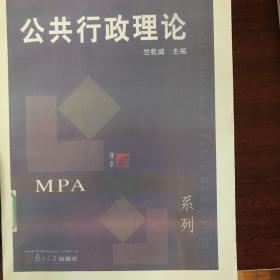
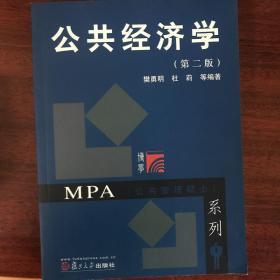
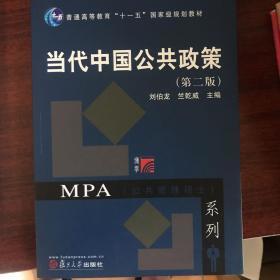
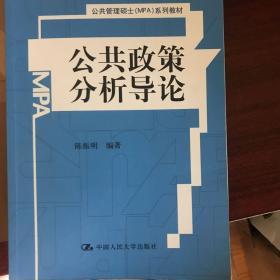
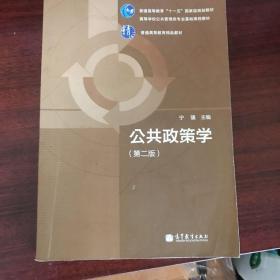


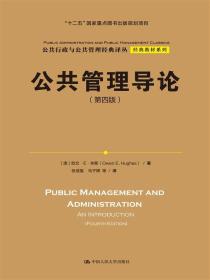

以下为对购买帮助不大的评价